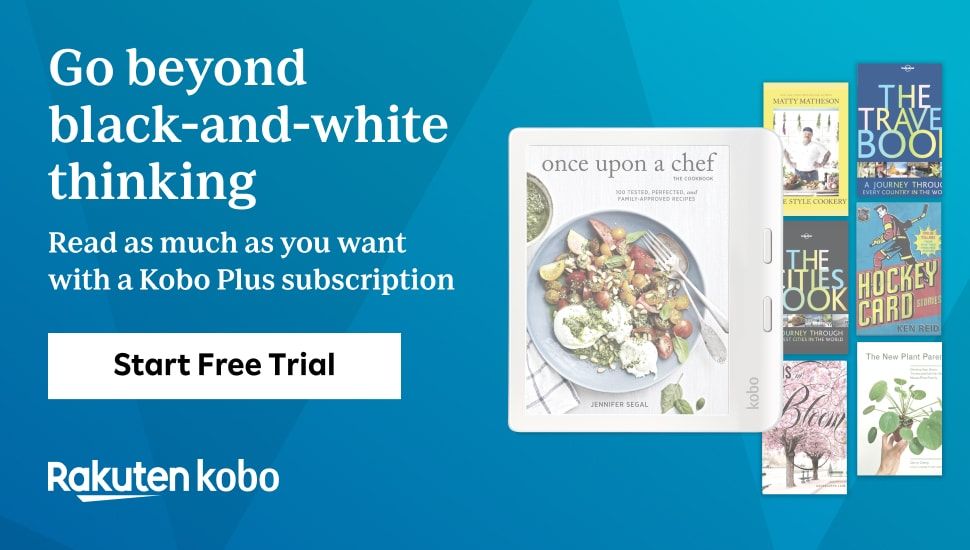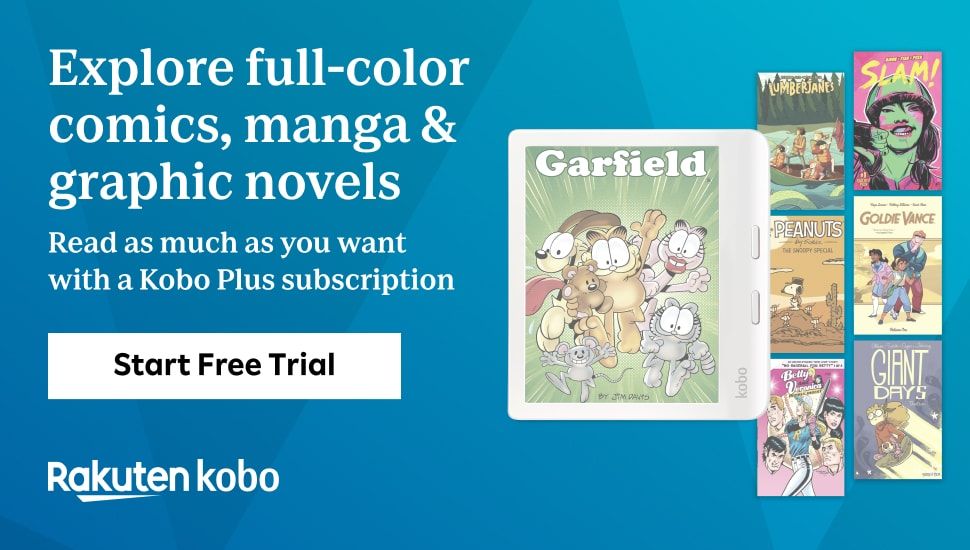
12 Things I’ve Learned in 12 Years of Book Riot
Earlier this month, on October 3, Book Riot turned 12. As the OGest of OG Rioters (my eternal thanks to founders Jeff O’Neal and Clinton Kabler for hiring me to run social media way back in the day), I can tell you it’s been a wild ride that I can’t totally wrap my head around.
In the last 12 years, we’ve gone from 2,500 page views per day to more than that per hour. We’ve launched and killed features, columns, newsletters, forums, podcasts, merch, subscription services, advertising options, non-book verticals (RIP Food Riot), membership models, and a whole host of social media accounts. We’ve weathered the introduction of algorithms—I will never forget the day I woke up and Facebook was no longer showing every one of our posts to every one of our followers—and the rise of SEO and AI. We’re currently experimenting with Substack, which feels so much like the style and community of early 2000s blogging that it’s giving me a real “everything old is new again” moment.
The internet never stays one way for long, and that means that making something on the internet requires not just creativity but grit, flexibility, and a Zen master’s ability to deal with change and uncertainty. What works today isn’t guaranteed to work tomorrow, but some of the lessons are enduring.
With a little help from my intrepid colleagues, here are 12 things I’ve learned in 12 years of Book Riot.
Content is hard. It’s easy to forget this—or to never even think about it—when you’re on the consumer end. We scroll through an unspeakable amount of stuff every day, and all of it was created by a person who sat down and had to decide what to make. Every post, newsletter, and podcast episode is the product of countless small decisions we make as we try to answer the questions, “What am I interested in and knowledgeable about? What will readers engage with? What both aligns with our values and allows us to make money?” That shit ain’t easy!
Ideas are never the problem. Never in 12 years of Book Riot or my 15 years of working on the bookternet have I run into a moment where we just don’t have an idea. The world is full of wonders, and there are so. many. books. When you get the right group of creative people, you’re never going to run out of ideas. They’re not all good ones, but we’ve always got them. Which brings me to…
There’s often a great idea hiding inside a bad one. In our company lingo, this is known as the Bad Idea Committee. No notion is too half-baked to be tossed into the ring. You throw out a bad idea, then your colleagues jump in and help polish it, or someone asks a question that unlocks a new way to think about it. And sometimes you think you’ve got a good idea, so you go ahead and make the thing, and when it doesn’t work, you realize it was hiding the kernel of a better idea all along. This is how the now-defunct Reddit-style forums we launched for sharing book news and ebook deals around 2012/2013 led to two of our most popular newsletters: Today in Books and Book Riot Deals.
Failure is part of success. This is a business book cliché for a reason. If you’re doing it right in a creative enterprise, you are going to try a whole lot of things, and most of them are going to fail. Some will be obvious flops right out of the gate, and it’s actually a gift when that happens. What’s much trickier is when something works just enough that you could justify keeping it around, or when a thing that has been successful starts to take a turn. Knowing when to shut it down—or occasionally, when to reshape it and try again—is a real art. Book Riot’s project graveyard is large and it contains multitudes. We learned something important from every single one.
Doing the right thing can be expensive in the short term but is usually cheaper and better in the long term. This one applies for both emotions and finances. The hard conversation is worth the short-term stress. Owning up to a mistake is an investment in future trust. Taking care of people and giving them space to be human is not just the right thing to do, it’s good for business. DEI initiatives can add time and expense to personnel processes, but they result in a stronger company that lives into its values. Trust is the most valuable asset we have—internally with employees and externally with our audience—and it is wise to make it a priority.
Most of the work of running a creative company is not creative. Or, it’s not the kind of work that looks creative. The folks who run your local indie don’t get to sit around reading all day, and neither do we. A typical week for me is one part making stuff—writing, podcasting, etc—and four parts meetings and administrative work. It takes a lot of spreadsheets to make a small business go.
Building your professional life around your hobby will change your relationship to it. When I was a barista, industry old-timers told me that the longer you spent your days making fancy coffee drinks, the simpler your own order would become. I went into that job loving frothy creations, and I stand before you now a woman who drinks Americanos with a splash of cream. Maybe a cappuccino if I’m really feeling froggy. Working in books for 15 years has had a similar effect. I still spend a sizable chunk of my free time reading, but I am much less interested in The Book as Object and much less attached to books as signifiers of my identity than I used to be. This isn’t how it shakes out for everyone—and I’m not upset about these changes—but it’s worth saying that if you love books and think you might want a career in publishing, you should be ready for the sparkle to fade or shift.
No one knows what The Next Big Thing will be. If there is one thing I’m certain of after a decade and a half in publishing, it’s this. The zeitgeist is unpredictable. No one saw Harry Potter coming. (Dozens of rejections are part of the JKR lore.) No one saw Gone Girl coming (and publishers are still trying to catch up and capitalize on it). No one saw E.L. James or Colleen Hoover coming (and we need look no further than the fact that both had to self-publish to get their work out into the world). Publishing is a casino, and folks do their best to make bets on titles they think they can turn into successes, but they’re at a perpetual disadvantage because they’re trying to guess what readers will want to buy in 2-4 years based on data about what they have already bought, and literary lightning rarely strikes twice.
There is no substitute for word of mouth. One thing all of the examples above have in common is that they began as word-of-mouth hits. And the thing about word of mouth is that you can’t predict it, and you can’t manufacture it. As just one example, publishers have spent the 11 years since Gone Girl came out positioning myriad domestic thrillers as “the next Gone Girl,” and the one that has come closest—The Girl on the Train by Paula Hawkins—owes its success not to a marketing campaign but to one particularly influential Goodreads reviewer. Facebook, Twitter, Instagram, #BookTok, Goodreads, Oprah, Reese, blogs, Book of the Month, Tumblr, Pinterest, and the zillions of social networks I’m forgetting are just word of mouth at scale, places readers go to find recommendations from people they trust and relate to. Of course marketers have to participate in those spaces and try to reach customers too, but I feel for the folks behind the scenes every time I hear that a publisher is trying to replicate the success of an organic word-of-mouth sensation. And that’s largely because…
The algorithm is not your friend. The algorithm is interested in one thing and one thing only: keeping users glued to the platform they’re on. By the time you think you’ve figured out what kind of book or video or silly dance the algorithm wants, it has moved onto something new. And it definitely doesn’t care about helping you get clicks to your book’s landing page. If you ever have the great good luck of receiving a gift from the algorithm in the shape of your book/article/video/whatever going viral, thank your lucky stars, cash your checks, and know that trying to make it happen again is likely an exercise in futility.
When you do your thinking in public, you do your learning in public too. One of the most important skills anyone writing for public consumption has to develop is the ability to receive feedback and to discern what’s worth listening to and what is trash (not to mention abuse or harassment, which no one should have to deal with). If you’re lucky enough to get to do this kind of work for any amount of time, some of it isn’t going to age well. And that’s okay! I die a little any time someone says they’ve gone back to listen to the earliest Book Riot Podcast episodes because I have lived several lives since then, but I know it’s generally a good sign for your intellectual growth when your ideas from a decade ago aren’t up to your current understanding of the world. If you can acknowledge that and explain how and why your thinking has shifted, you have a real opportunity to do some good.
Change happens slowly, but it does happen. It’s easy to lose sight of this—or even to lose hope—from inside any movement. Book Riot has had a progressive mission from the start, and over the last 12 years, I’ve seen the industry go from being wary of engaging with openly political discourse about books and reading (which, of course, have always been political) to embracing organizations like We Need Diverse Books, creating programs to diversify workforces and bookshelves, and taking social and legal action to fight book bans. The change isn’t linear, it isn’t perfect, and it doesn’t happen nearly as fast as I wish it would, but it is meaningful, and it’s important to pause and take that in.
Twelve years ago, none of us at Book Riot could have guessed what the company and our creative work looks like now, and for me, the constant change and discovery is part of the fun. Our original tagline was “Always books. Never boring.” May it remain so.















Leave a comment
Join All Access to add comments.